Beyond the Driver: Are Trucking Companies Responsible for Driver Fatigue?
If you suspect the driver was exhausted after a devastating collision with a large truck, contact a personal injury lawyer. When examining whether a trucking company is responsible for driver fatigue, the answer is usually. Companies are frequently liable when their tired drivers cause a wreck.
This responsibility arises from two main sources: their legal duty for their employees’ actions and their own direct negligence in putting a dangerous driver on the road. A truck accident lawyer investigates the corporate behavior that leads to these preventable tragedies.
Table of Contents
ToggleThe Two Paths to Company Liability
When a fatigued truck driver causes an accident, there are two primary ways a trucking company is held legally responsible. One path focuses on the employer-employee relationship. The other path examines the company’s own independent failures that endangered the public.
A thorough truck accident claim explores both avenues to establish accountability.
When the Driver Is an Employee
In most situations, an employer is legally responsible for the negligent actions of an employee on the job. This legal principle means that if a truck driver is a company employee, the company itself is automatically on the hook for a crash the driver causes. The driver’s fatigue becomes the company’s liability.
The company doesn’t have to have done anything wrong itself for this to apply. The driver’s mistake, made while working for the company, is legally seen as the company’s mistake. A lawyer works to establish the employment relationship to connect the driver’s negligence directly to the corporation.
When the Company’s Own Actions Are Negligent
A trucking company can also be held accountable for its own direct negligence. This happens when the company’s own decisions, policies, or failures contributed to the crash. In these cases, the focus is on the corporation’s wrongdoing, independent of the driver’s errors.
Direct negligence is about the company’s choices back at the corporate office. These choices created the dangerous situation that led to your injuries. A claim based on direct negligence seeks to hold the company accountable for its own poor judgment and reckless disregard for safety.
Rare Exceptions

Trucking companies are frequently liable in fatigue-related crashes, but not always. If the truck driver was off duty or acting outside the scope of their employment at the time of the crash, the company may avoid liability.
For example:
- The driver takes a detour for personal errands.
- The driver uses the truck for unauthorized purposes.
- The crash occurs during unpaid, personal time off the clock.
If the company can show it complied with all safety regulations, and there is no evidence that fatigue played a role, it may escape liability.
Even if the driver was fatigued, a company may not be liable if it took reasonable steps to prevent such risks and had no reason to suspect anything was wrong.
For example:
- The driver had adequate rest.
- The company had no way of knowing the driver was tired.
- No warning signs (like logbook violations or complaints) were ignored.
If another driver caused the accident and the fatigued trucker had little or no opportunity to avoid it, the trucking company might not be held responsible. In such situations, the driver’s fatigue may have no bearing on the actual cause of the crash.
Instead, the fault could lie entirely with a third party, such as a speeding car, a distracted driver, or a reckless motorcyclist.
Federal Rules Designed To Prevent Driver Fatigue
The federal government sets strict safety rules to combat the known danger of tired truck drivers. The Federal Motor Carrier Safety Administration (FMCSA) creates these regulations to protect everyone on the road. The most important of these are the Hours-of-Service (HOS) rules.
HOS regulations are the bedrock of truck safety. They’re not suggestions; they’re the law. These rules limit how many hours a commercial driver operates a truck in a day and in a week, and they mandate specific off-duty rest periods.
The sole purpose of these rules is to prevent fatigue-related crashes. When a company encourages or allows a driver to violate these rules, it’s a clear sign of negligence.
A deep dive into whether a company respects or ignores these federal mandates is a key part of any truck accident investigation. Violating these rules is strong evidence of a company prioritizing profits over people.
How Companies Create Fatigued Drivers
A tired driver is often a symptom of a sick company culture. Trucking companies, through their actions or inactions, frequently create the very conditions that lead to driver fatigue. This corporate negligence takes many forms, all of which put the public at unacceptable risk.
Here are common ways trucking companies are responsible for driver fatigue:
- Unrealistic Schedules and Pressure: Companies often put intense pressure on drivers to meet unrealistic delivery deadlines. They use dispatchers to push drivers to keep moving, even when the driver knows they need rest.
- Poor Hiring and Training: A responsible company thoroughly screens its drivers, checking their background, safety history, and medical qualifications. A negligent company hires unqualified drivers, fails to provide proper safety training, or ignores a driver’s known history of traffic violations or health problems.
- Failure to Supervise Drivers: A company is supposed to monitor its drivers for compliance with safety rules. A negligent company looks the other way, failing to audit logbooks or check electronic data that would reveal a pattern of speeding, hard braking, or driving beyond legal hour limits.
- Incentivizing Dangerous Driving: Some pay structures reward speed over safety. Paying by the mile, rather than by the hour, creates a powerful financial incentive for drivers to cut corners, skip breaks, and push through fatigue to make more income.
The Critical Evidence in a Fatigued Driving Case

Proving that a trucking company is responsible for driver fatigue requires more than just pointing fingers. A lawyer must gather specific, robust evidence that exposes the company’s negligence. Trucking companies often hold this evidence, which must be demanded immediately after a crash.
A lawyer acts quickly to preserve and obtain this data:
- The Electronic Logging Device (ELD): This federally mandated device automatically records a driver’s driving time, speed, and rest periods. The ELD data is one of the most powerful tools for proving HOS violations and uncovering a pattern of fatigue.
- The Truck’s Black Box: The truck’s Electronic Control Module (ECM) records crucial data about its operation, such as speed, braking activity, and cruise control usage in the moments before a crash.
- Company Communications: A lawyer demands records of all communication between the driver and the company. Dispatch records, emails, and text messages often reveal direct evidence of a company pressuring a driver to violate safety rules.
- Driver’s Qualification File: Every company must maintain a detailed file on each driver, including their application, training records, driving history, and drug test results. This file often contains red flags that a negligent company chose to ignore.
- Post-Crash Inspection Reports: Law enforcement and inspectors examine the truck for mechanical failures following a serious crash. These reports also often contain details about the driver’s logbooks and compliance with federal regulations.
The Independent Contractor Defense
Trucking companies often try to avoid responsibility by classifying their drivers as independent contractors instead of employees. They argue that the company isn’t responsible for the driver’s negligent acts because the driver isn’t an employee.
This is a common legal tactic designed to shield the corporation from liability. A skilled personal injury lawyer knows how to fight this defense. They investigate the true nature of the driver’s relationship with the company.
Even if a driver is labeled a contractor, a lawyer shows how the company still exercised significant control over the driver’s work, making them function like an employee. A company also remains directly liable for its own negligence in hiring an unsafe contractor.
How a Lawyer Proves Trucking Company Responsibility for Driver Fatigue
Taking on a massive trucking corporation requires a legal team with the experience, resources, and determination to level the playing field. An attorney’s job is to systematically uncover the truth and hold the company fully accountable for its role in causing the crash.
Launching an Immediate Investigation
Time is of the essence. A lawyer immediately sends a legal notice, called a spoliation letter, to the trucking company, demanding that they preserve all evidence of the crash. This stops the company from “losing” or destroying critical data like ELD records or dispatch communications.
Uncovering a Pattern of Negligence
A lawyer looks beyond just your accident. They investigate the company’s overall safety record, looking for patterns of HOS violations, past accidents, and other safety failures.
Proving that your crash was part of a larger corporate pattern of disregarding safety is evidence of direct negligence.
Hiring Industry Experts
Proving a trucking company’s fault often requires the testimony of qualified experts. A lawyer hires trucking industry safety consultants to analyze the evidence and explain to a jury how the company violated federal regulations.
They may also use accident reconstructionists to show exactly how the fatigue-related crash occurred.
Standing Up to Corporate Legal Teams
Trucking companies and their insurers have teams of aggressive lawyers whose only job is to minimize payouts. Your lawyer becomes your champion, managing all communications and fighting back against their intimidation tactics.
FAQ for Are Trucking Companies Responsible for Driver Fatigue?
What’s the Difference Between the Driver Being Liable and the Company Being Liable?
The driver is liable for their personal negligence in choosing to operate a truck while fatigued. The trucking company’s liability is broader; it’s responsible for its drivers’ actions (as the employer) and for its own direct negligence, such as pressuring drivers, failing to train them, or ignoring safety rules.
A personal injury lawyer can help you file a claim against all negligent parties.
What if the Company Calls Me With a Settlement Offer Right Away?

Be extremely cautious of a fast settlement offer from a trucking company’s insurer. It’s a common tactic used to resolve a case for a fraction of its true value before you know the full extent of your injuries and long-term costs.
It’s best not to accept an offer until you have reached Maximum Medical Improvement and all the evidence has been gathered. A lawyer can advise you on all offers.
What if the Driver’s Logbook Looks Perfect?
Even if the paper or electronic logbook appears to be in compliance, a skilled lawyer digs deeper. They compare the logbook data to other evidence like fuel receipts, GPS data from the truck, and cell phone records.
These other sources may reveal that the logbook was falsified to conceal violations of the Hours-of-Service rules.
What Compensation Is Available in a Truck Accident Claim?
You have the right to seek compensation for all your losses, including economic damages like your past and future medical bills, all lost income, and diminished earning capacity.
You can also seek payment for non-economic damages for your physical pain, emotional suffering, scarring, and loss of enjoyment of life.
Is a Trucking Company Responsible for Driver Fatigue, Even if They Claim the Driver Chose To Drive Tired?
A trucking company is still responsible because it has a legal duty to prevent its drivers from operating while fatigued. This duty includes properly training and supervising drivers, setting realistic schedules, and using electronic data to detect HOS violations.
A company that creates an environment where tired driving is encouraged or tolerated is directly negligent, regardless of the driver’s final choice.
Call Boohoff Law, P.A. Today for a Free Evaluation
A trucking corporation’s negligence may have caused this devastation, but it doesn’t get the final say. With the help of a personal injury attorney, you have the right to expose the truth and demand justice from the powerful entities that put their profits ahead of your safety.
Holding them accountable is the first step toward rebuilding your life. Contact Boohoff Law, P.A. 24/7 at (813) 445-8161 for your free, confidential consultation.
Free Consultation
We Are Here For You 24/7
Reviews
– Elissa M.
“Really pleased with Boohoff Law! Received immediate responses when I had any questions. Treated amazingly by all staff … made this process a true breeze!”
– Caitlyn M.
– Brandy K.
Related Posts
I Was Partially At-Fault in a Rear-End Crash. Can I Still Get Compensation in Florida?
I Was a Passenger in an Uber Accident. What Are My Rights?
What Damages Can I Recover After a Jackknife Truck Accident?
Recovery is personal.
We’re here for you.
We’re close by. And if you can’t make it to us, we’ll meet you where you need us, at home or in the hospital.
You're better off with Boohoff.
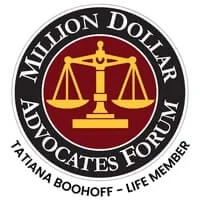

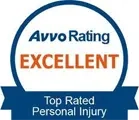
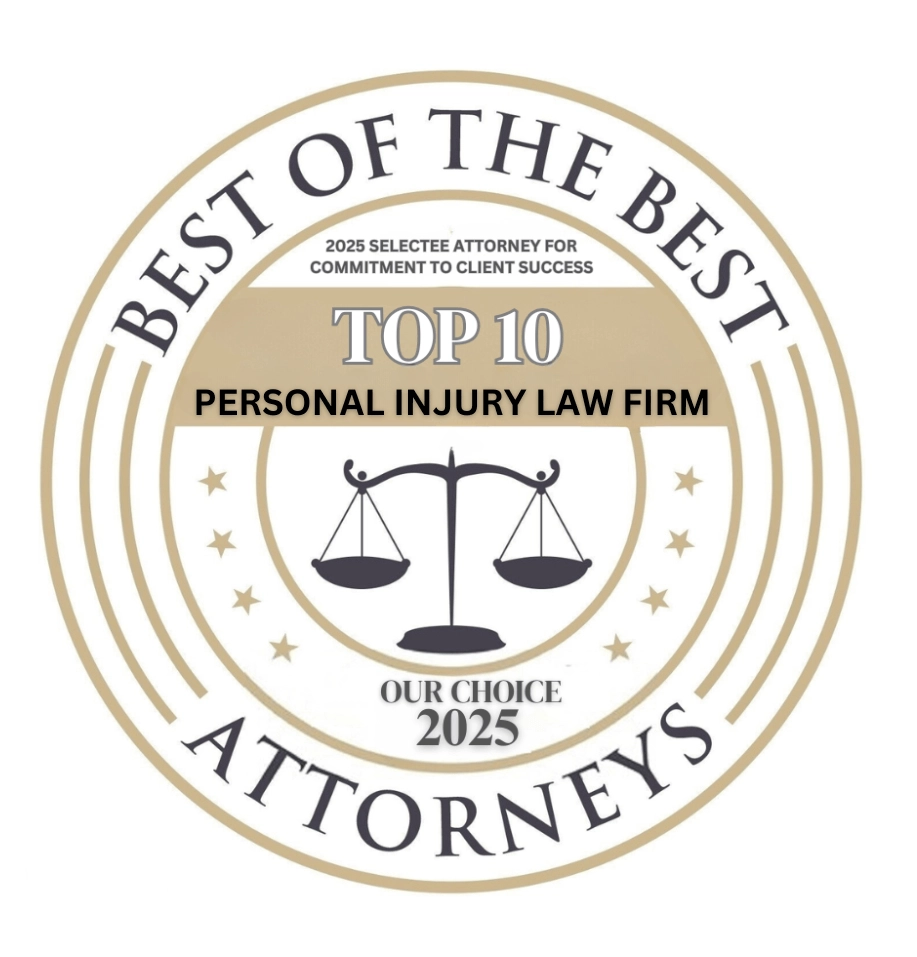
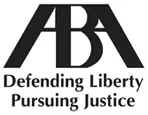
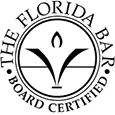





The information on this website is for general information purposes only. Nothing on this site should be taken as legal advice for any individual case or situation. This information is not intended to create, and receipt or viewing does not constitute, an attorney-client relationship.
available 24/7
(877) 999-9999
